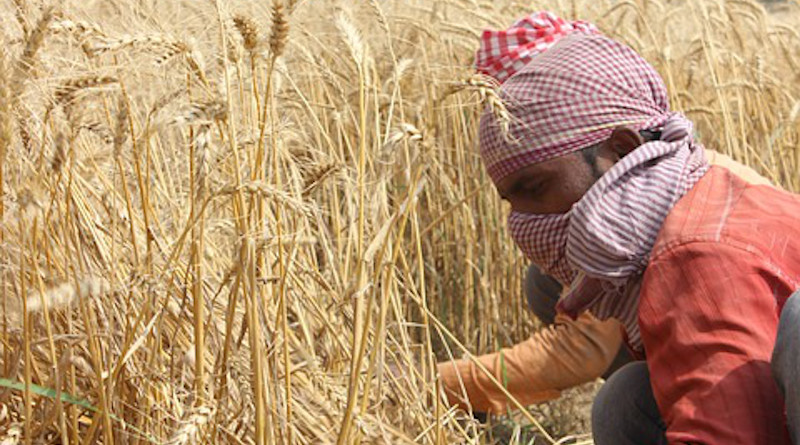Farmers In Crisis: Turmoil In Punjab And Maharashtra – OpEd

Over the recent years, India has recorded a worrisome trend of increased violence and social unrest among farmers especially in the Punjab and Maharastra states. Violent situations incidences refer not only to worsening economic landscape for farmers but also to the failure in political stewardship and role of institutions. Farmers are in a bad situation because of loan burdens, erratic market prices, and little help from the government, and are even committing suicides. This article focuses on a complex crisis that affects the above-mentioned agrarian areas, with focus on crisis’s origins, consequences, and the necessity for changes.
Based in Northern India, Punjab (the land of five rivers) has been called the granary of India, where farmers are now frequently taking their lives. In research conducted at Panjab Agriculture University, 9291 farmers killed themselves in six districts within 2000 and 2018 and among those 88% cited debts as a reason to end their lives.
Farmers are born into debt, and due to loan burdens, loan sharks harass them continuously, which is compounded by volatile prices of crops, increasing cost of inputs, and climatic shocks. This also increases the mortality rate, the situation is not very different in other areas of the country, such as Maharashtra, especially the Amravati Administrative Division.
A recently released government report shows this escalation with a view to indicating that 557 farmers committed suicide in the first half of the year 2024. The reasons mirror those in Punjab: A disturbing correlation with overwhelming debts and inadequate governmental support especially, in matters concerning timely farm loans and economic bailouts. The present crisis has turned the districts such as Amravati, Yavatmal, and Buldhana into a vortex of hopelessness, in which every farmer’s suicide is intertwined with a failure of the system.
Socio-political climate of Punjab and Maharashtra are scenarios of social and economic problems and political neglect. Failure of the past and the present state governments to address the rural distress issues more civically have compounded the disappointment among the farmers. Various agrarian issues have been sidelined and have just become political points of discussion where attempts to either deliver farm loan waivers or Managed Service Provide (MSP), reach points of political polarization instead of real policy changes.
Alongside, there are cases of aggression – be it the latest targeting of farmers and leaders in Punjab or any other, which tell of a deterioration in law and order situation. These acts of brutality remain unguarded, they represent put-up angers resulting from economical exclusion and political neglect. The network of organized crime in association with political patronage and agrarian stress enhances the situation of apprehension and skepticism.
Although the rates of suicides and violent episodes are alarming, lost is the true feel of how such has affected several rural areas. Those whom the farmer suicides have left behind are equally or even more miserable; they have been pushed to further depths of poverty coupled with social shame. Boys and girls lose not only their parents, but their dreams about education and a better future as well. The psychological consequences for the survivors as well as the communities continue to affect subsequent generations hence leading to abject poverty and hopelessness.
From the economic angle, the impact of the agricultural crisis endangers the food security in India as well as employment opportunities in the rural areas. Many of the affected people are small and marginal farmers and due to poverty and lack of capital they get indebted and become subject to the vicious cycle of debt. Their options get limited and due to the hope of getting even informal jobs, people turn into cities thus putting pressure on the available infrastructure and enhancing unfair competition.
For the efficient handling of the agrarian crisis especially in the states like Punjab and Maharashtra; there is need to employ multi-dimensional measures. One of the short-term steps in this strategy, should be efficient debt relief and at the same time, the proper method of granting credits, which remain important in decreasing the financial pressure and instances of farmer suicides. Continuation in the long run requires encouraging farmers to diversify their crops and avoid its vulnerability to climate and markets. Just to name a few, fair Minimum Support Prices (MSP) and functional procurement systems have to be in place and become policy reforms in order to regulate incomes and prevent people from being exploited. Irrigation and storage services require investment to improve their productivity; this investment is necessary to prevent cases of loss. Thus, social support services have to be enhanced as a means of delivering mental health help, education assistance, and vocational training; and while it is crucial for political responsibility to be made more liable, it is also important to restore the public’s confidence in the agriculture sector. All these changes intend to improve the structure and causes of vulnerabilities in agriculture and help to provide a stable living for farmers in India.
Thus, the analysed calamities related to Punjab and Maharashtra are not merely agricultural or economic but more fundamentally moral and political. They undermine the spirit of democracy as well as social justice of India. They graduated, got jobs, married, reproduced and came home to this difficult reality, we have painted and yet, despite the odds stacked against them, they soldier on. Positive changes can only be attained when governments, civil society and grass root organizations work hand in hand, to give Indian farmers, the respect and support, which they rightly deserve.
